The Egyptians were already using aloe, lavender, and peppermint for cosmetic purposes over 5,000 years ago.
The knowledge they gained about plants has been preserved through centuries and we still use many of the same ingredients to treat our skin today.

Even though scientists are discovering new plants and fungi every year – over 100 new species were identified in 2022 alone – the cosmetics industry largely sticks to the same, tried-and-true plant extracts in its products.
Now, an advanced search engine is, for the first time, helping skincare companies develop new products incorporating plants and their compounds that they’ve never used before.
It shows them how each ingredient will affect human skin, and whether combinations of different ingredients could have adverse effects, causing dryness, rash, or aging of the skin.
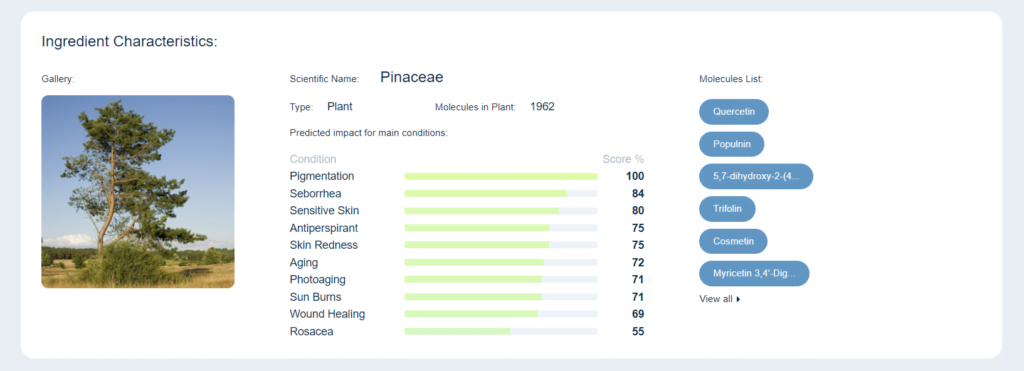
Israeli startup MeNow has collected data on hundreds of thousands of plants and plant compounds. Its information is compiled from countless databases – from those on plants native to specific countries like Peru and Chile, to medical and clinical trial data on plants.
Founders Dr. Hilla Ben-Hamo Arbel and Dr. Coralie Ebert also developed a virtual model of the skin, based on thousands of skin samples collected from different ethnicities of people, ages, skin conditions, and skin types.
And they have an algorithm that predicts the biological effects of any molecule on different skin types, based on its structure and chemical properties.
“We wanted to make something that can take any ingredient – from plants, mushrooms, even corals from the sea – and just based on the molecular composition, be able to predict what will be the effect on the skin,” says Dr. Ebert.
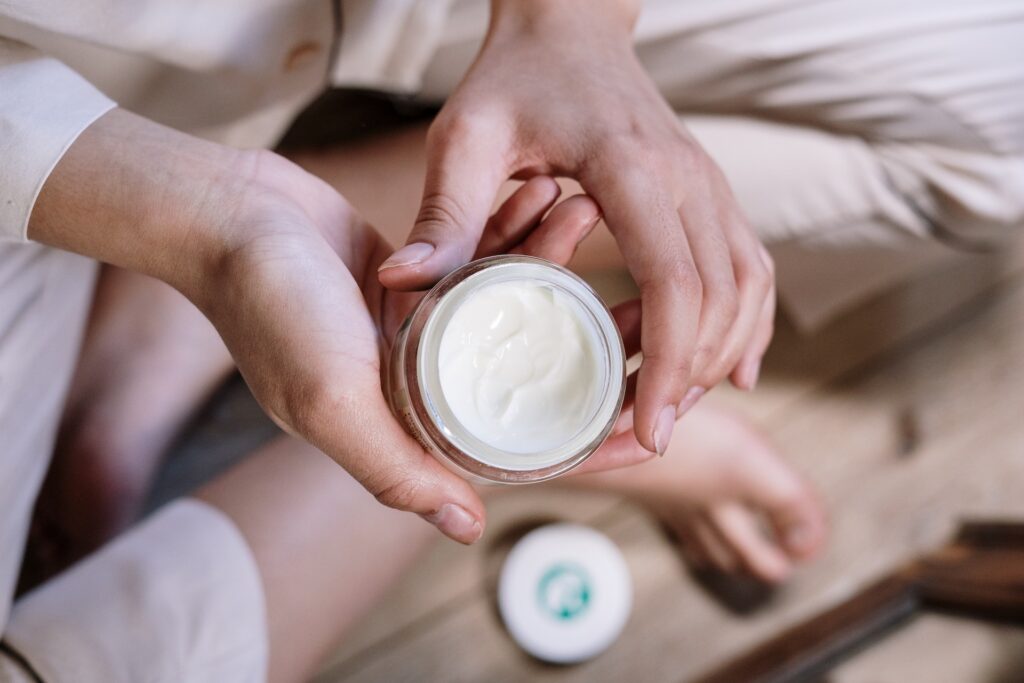
“Just think about it,” says Dr. Ben-Hamo Arbel. “You could be walking in the street, and there are lots of plants – and maybe one of them has a molecule that could change your life – but you wouldn’t know it, because there is nothing that can measure it and check the impact of each and every ingredient.
“It can take years to isolate and analyze just one molecule. Our AI tells you immediately how it’s going to affect your skin.”
In Europe, a special commission is in charge of approving the use of ingredients in cosmetics. There are over 50,000 ingredients in its cosmetics databases, but regulation is lenient – meaning companies can technically combine these approved ingredients without checking their impact on different kinds of skin.
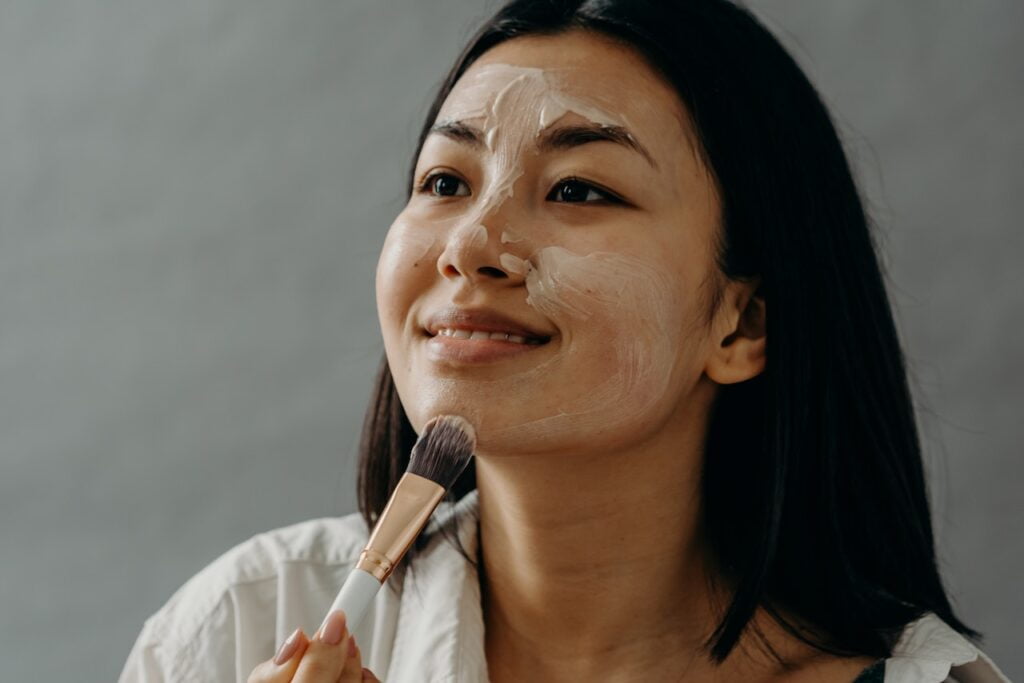
For example, MeNow analyzed one of Amazon’s best-selling moisturizers, which contains nine plant extracts. It boasted of anti-bacterial, anti-inflammatory, and anti-acne properties, but the combination of plants was also found to cause flare-ups for people with rosacea, a common skin condition that causes flushing and swollen bumps on the face that can take months to clear up.
Sign up for our free weekly newsletter
SubscribeSo cosmetics companies can use the MeNow database to not only incorporate new plant extracts into their products, but also to investigate the impacts of ingredients in their existing products.
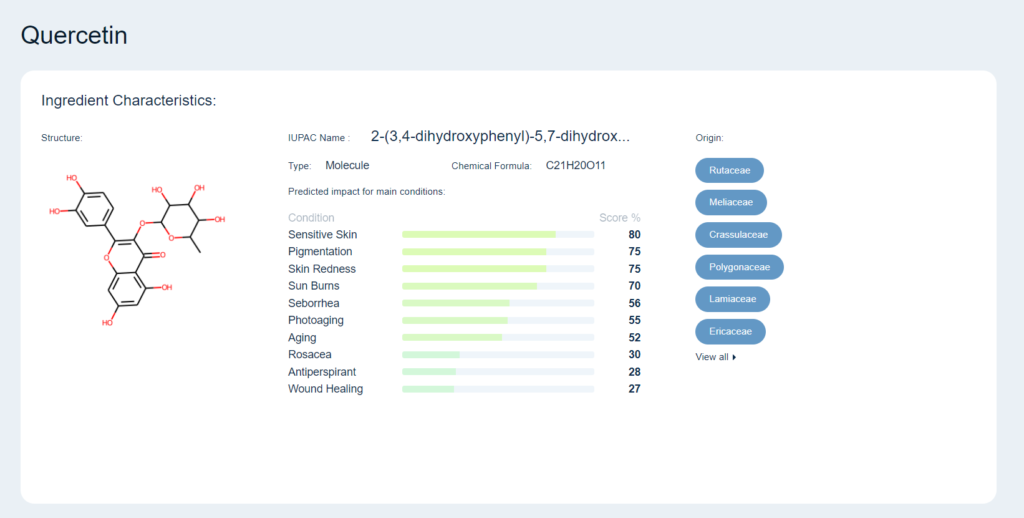
And by using the database, they can alter the formulations of their creams, serums, and cleansers, or inform consumers about their products’ potential effects.
Green Mountain Biotech, a company that develops ingredients from Chinese medicinal plants for skincare, used the MeNow algorithm to predict their therapeutic effects on different skin conditions.
“They had a few dozen plants used in traditional Chinese medicine that they wanted to better understand for their next product range,” says Dr. Ebert. “We predicted the effect of these plants on the skin for them, and the combination of different plants on the skin.”

“We predicted one plant to be phototoxic, meaning it could sensitize the skin to the sun if it were to be used in a skincare product.”
Dr. Arbel says: “When companies work on a new product, they initially have a few ideas of things that they saw that might be trendy,”
“Then it goes through a long process of being tested in the lab. MeNow accelerates the process so they don’t need to consult with anyone on the impacts of the ingredient. I think it’s a game changer for them.”
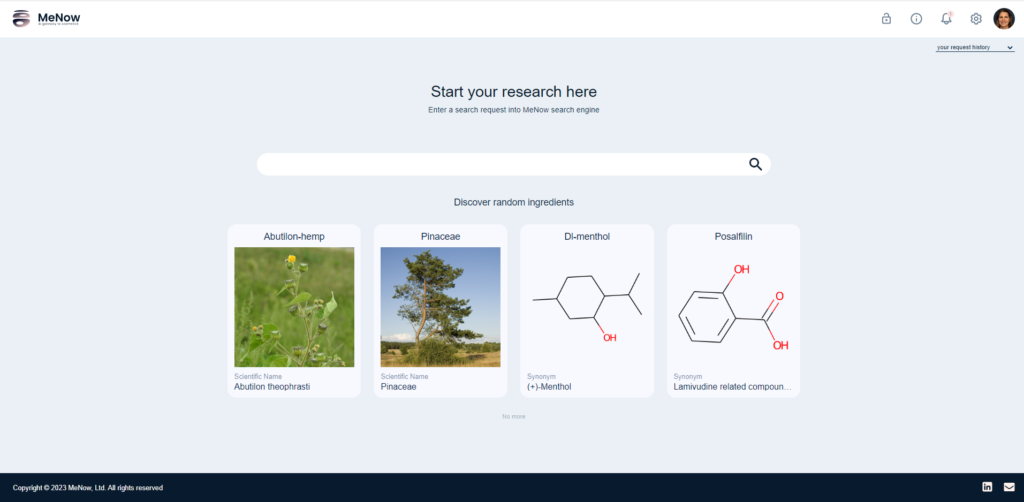
In addition to its extensive database, MeNow will soon incorporate its algorithm into cosmetic company websites, to recommend the best-fitting skincare products depending on factors such as gender, whether they smoke, if they’re pregnant or breastfeeding, and if they suffer from skin disease or diabetes.
“Our algorithm goes into the product list of the website, scans all the products, and scores each of the products depending on how fitting it is for you. It’ll recommend the top products for you, like moisturizer, exfoliator, serum, and will explain scientifically why these are the right products for you.”

Companies in the process of incorporating the AI include Fré, a skincare range for athletic women, and Kamedis, an Israeli brand that develops treatments for skin conditions.
“The cosmetics or skincare industry is a very competitive field,” says Dr. Ebert. “It’s not like 50 years ago where you had less brands, and when people stayed very loyal to specific products. Right now, people are switching over all the time.
“If you want to survive in the cosmetics market, you have to be ready to answer people’s needs.”
Related posts

Editors’ & Readers’ Choice: 10 Favorite NoCamels Articles

Forward Facing: What Does The Future Hold For Israeli High-Tech?

Impact Innovation: Israeli Startups That Could Shape Our Future




Facebook comments